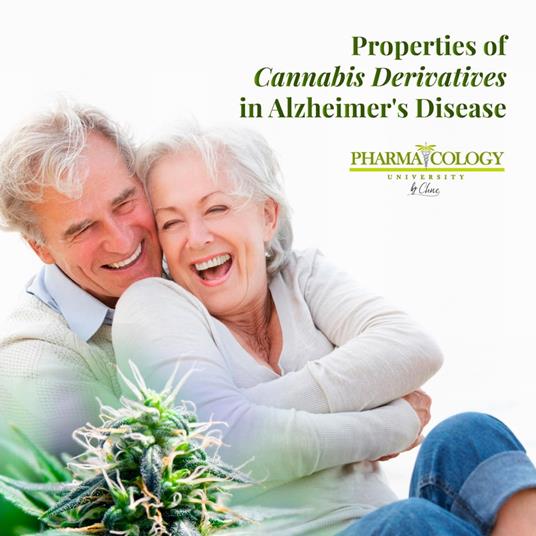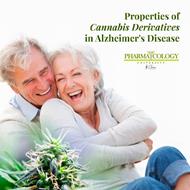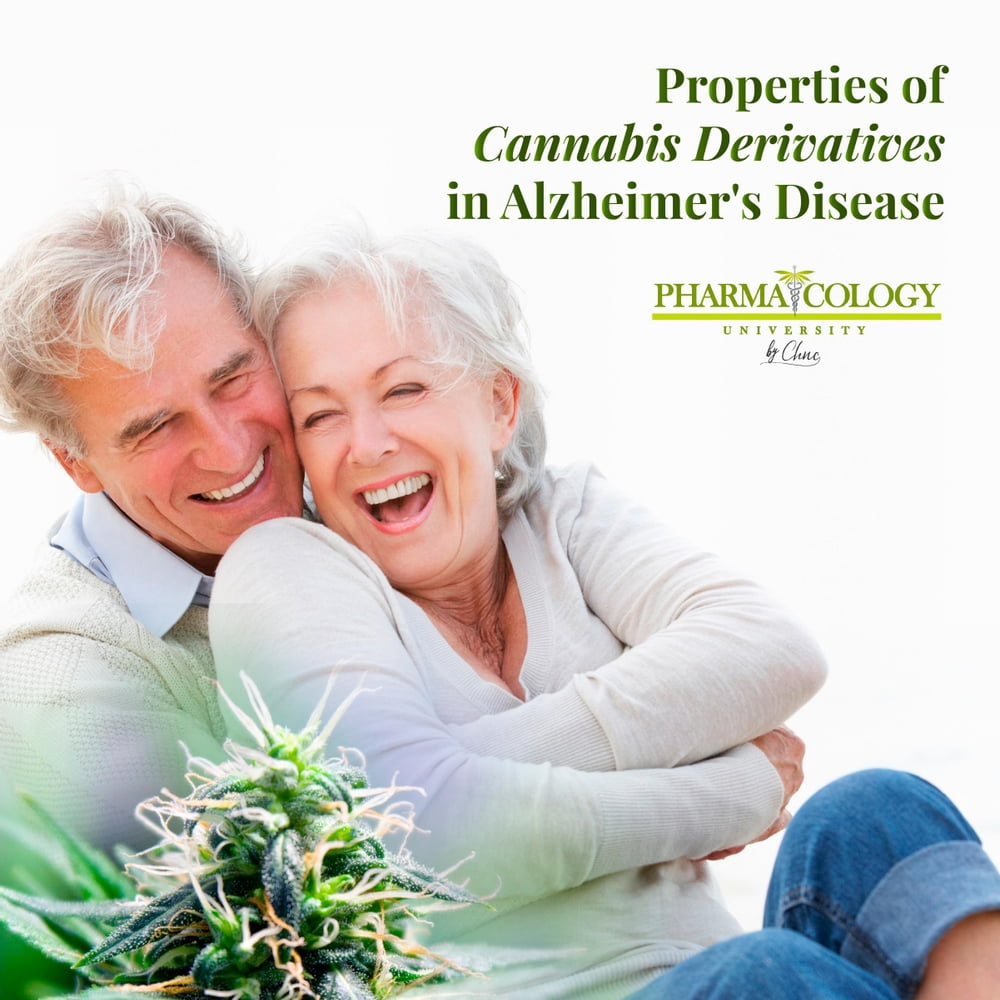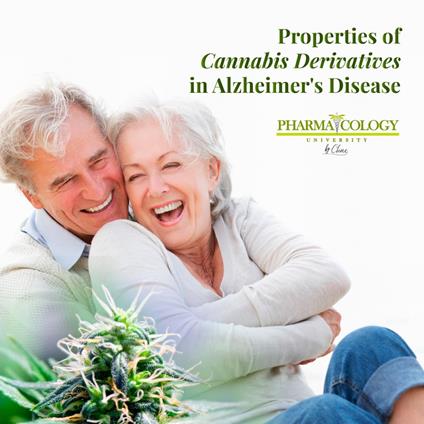Properties of Cannabis Derivatives in Alzheimer's Disease
Alzheimer's disease is a medical condition identified by the German psychiatrist Alois Alzheimer in 1901, who described the first case as characterized by the degeneration of the central nervous system. It is a type of dementia, evidenced by progressive atrophy of the brain, resulting from neuronal alteration and death, especially of those neurons located in the cerebral cortex and the hippocampus. The clinical manifestations of the disease vary among patients. Nonetheless, most cases present the following symptoms: amnesia, behavioral disorders, sleep disorders, disorientation, hallucinations, general deterioration of the physical condition, health, and others. Although the histopathological mechanisms, which lead to the death of neurons, have been accurately identified, the underlying cause of the disease remains partly a mystery. The deterioration of the brain tissue is due to a process of cellular toxicity where three elements intervene: accumulation of beta-amyloid peptides, exaggerated phosphorylation of tau proteins leading to cell death, and the production of reactive oxygen species, which condition the damage from free radicals. Epidemiological data from 2015 showed that approximately 46 million people were affected with dementia worldwide, of which 9.4 million were in the Americas, 10.5 million in Europe, 4 million in Africa, and 22.9 million in Asia. It is estimated that by 2035 these figures could double. Given the high numbers projected for the future for Alzheimer's disease, the development of therapeutic alternatives is a must to minimize the adverse effects or reduce the risk of a patient's life suffering from deteriorating brain processes, such as memory and the ability to make decisions, is expected. Nowadays, there are no specific drugs to treat Alzheimer's, so therapeutic approaches are applied to control and manage clinical manifestations, like using nervous system depressants to combat the patients' mood swings and anxiety. It is a concern that many of these drugs cause adverse effects, which further compromise the quality of life of the patient suffering from this disease. But, even more importantly, these drugs are often highly toxic at high doses, with lethal doses not very difficult to achieve, which implies a significant risk in the context of a patient prone to disorientation and frequent memory disorders. Modern scientific research discovered the endocannabinoid system's protective role with neurodegenerative diseases such as Alzheimer's. The elements through which cannabinoids contribute to minimizing the effect it has on neuronal cells, include cellular mechanisms to regulate the exaggerated inflammatory response, a result of the stimulation of beta-amyloid peptide, and the promotion of the synthesis of degradative enzymes of this substance. Endocannabinoid system stimulation through phytocannabinoids use, such as CBD, promotes neurogenesis (formation of new neurons from precursor cells) and triggers protective mechanisms against free-radical damage. Also, ?9-THC protects the brain from various neuronal aggressions and ameliorates, both symptoms of neurodegeneration. As scientific literature becomes available, the link between the endocannabinoid system and the delay in the progression of neurodegenerative diseases, such as Alzheimer's, is more evident. The same thing happens with other beneficial properties, also attributed to cannabinoids use, such as acting as anxiolytics, antidepressants, neuroprotective, orexigenic, memory stimulants, and regulating sleep. There is great interest in the proposal of medical cannabis as a therapeutic alternative in the management and treatment of Alzheimer's disease. In the future, it could position itself as one of the most effective and safe ways to treat or slow down the degenerative process in this pathology.
-
Autore:
-
Durata in (hh:mm:ss):00:39:20
-
Anno edizione:2021
-
Editore:
Formato:
Gli Audiolibri venduti dal nostro sito sono in formato MP3 e protetti da un DRM proprietario Kobo.
Compatibilità:
Gli Audiolibri venduti dal nostro sito possono essere ascoltati sul tuo smartphone o tablet tramite la APP gratuita Kobo Books scaricabile da iOS o Android. Gli Audiolibri non possono essere scaricati in locale o trasferiti su un client di ascolto diverso da quello fornito tramite Kobo. Non è possibile ascoltare gli audiolibri con la Kobo APP Desktop. Puoi ascoltare gli Audiolibri tramite determinati eReader Kobo, utilizzando cuffie o casse con Bluetooth. Visita la pagina degli eReader per avere maggiori dettagli.
Cloud:
Gli Audiolibri venduti singolarmente dal nostro sito sono immediatamente sincronizzati sul tuo account personale in automatico. Successivamente all'acquisto, sono subito disponibili all'ascolto tramite i client di lettura Kobo compatibili.
Clicca qui servissero ulteriori informazioni



